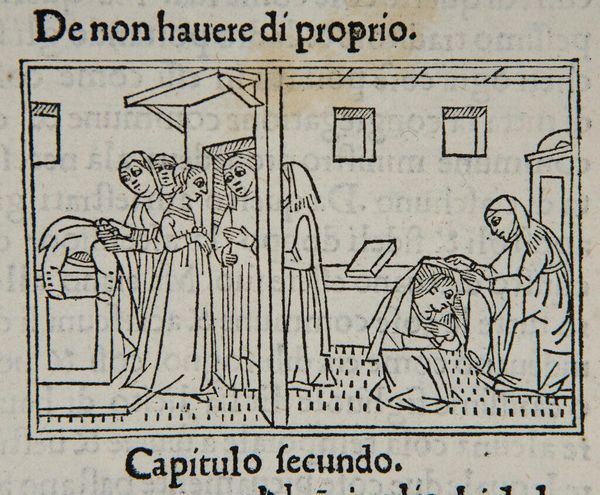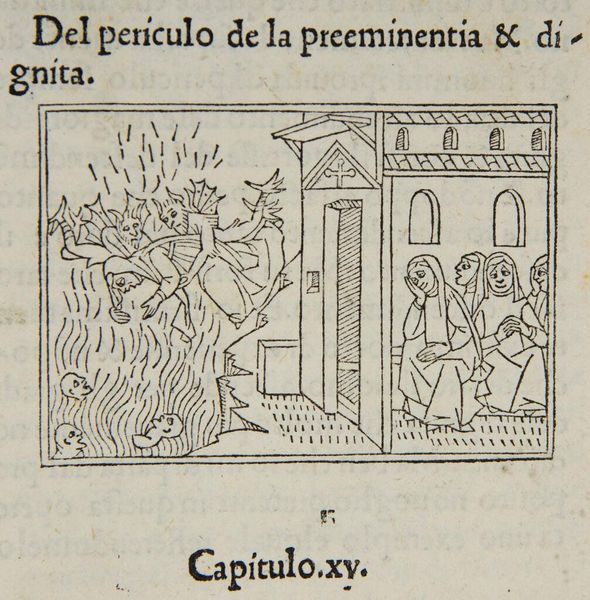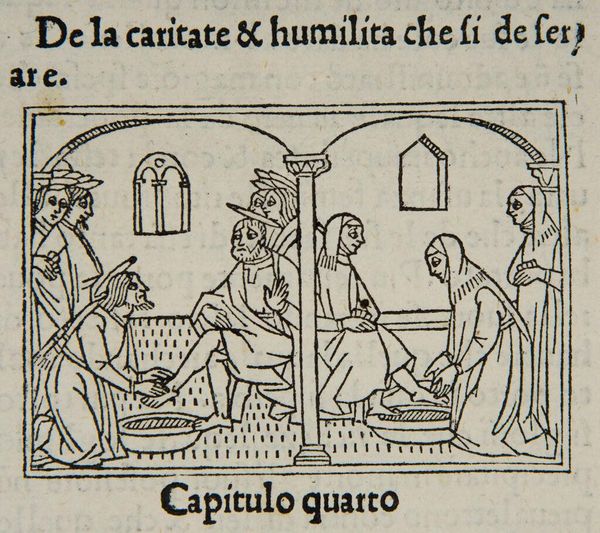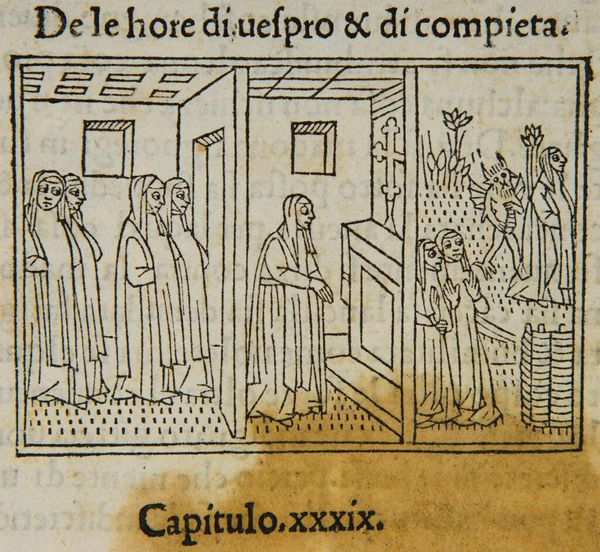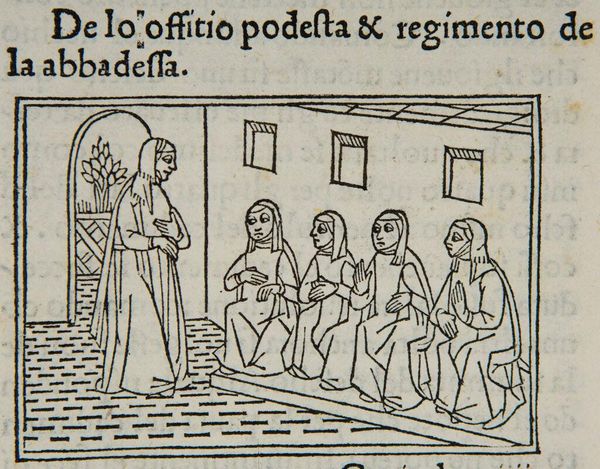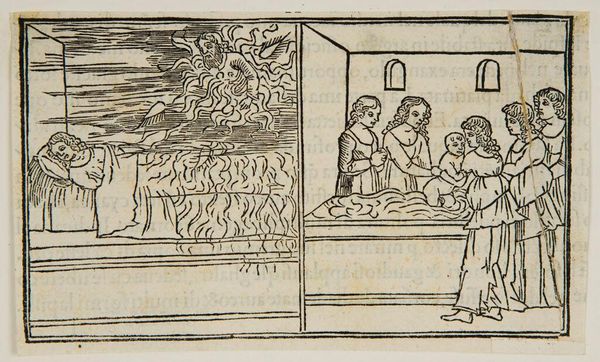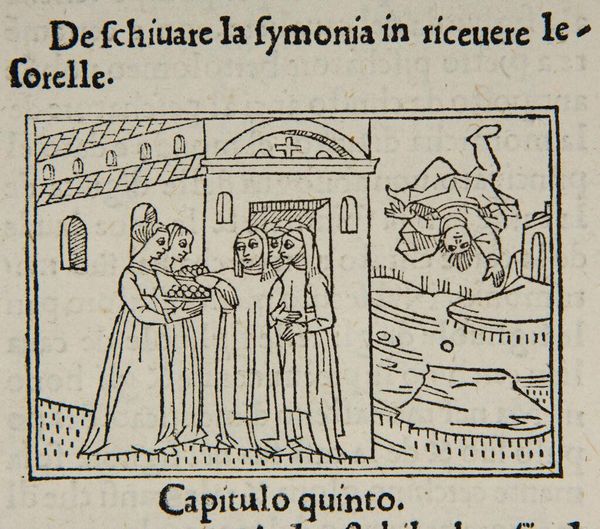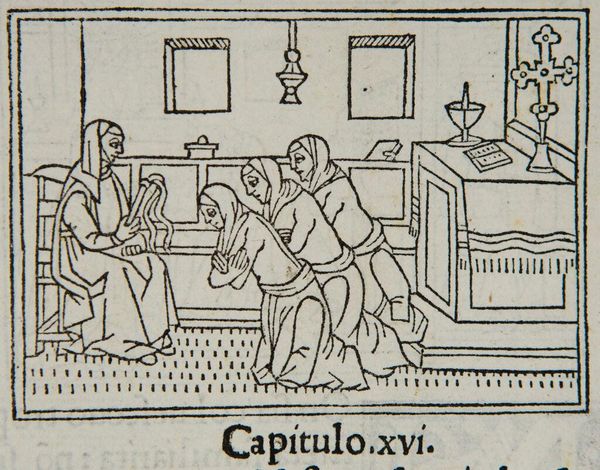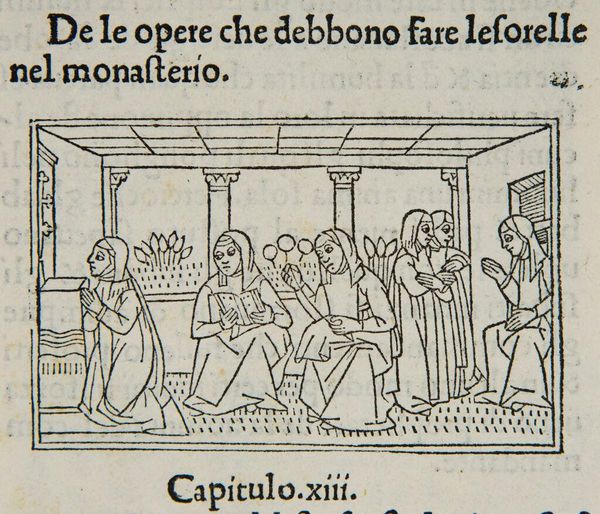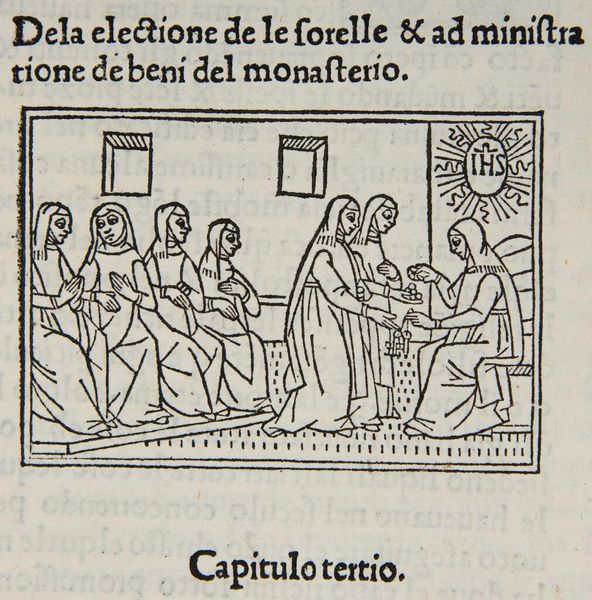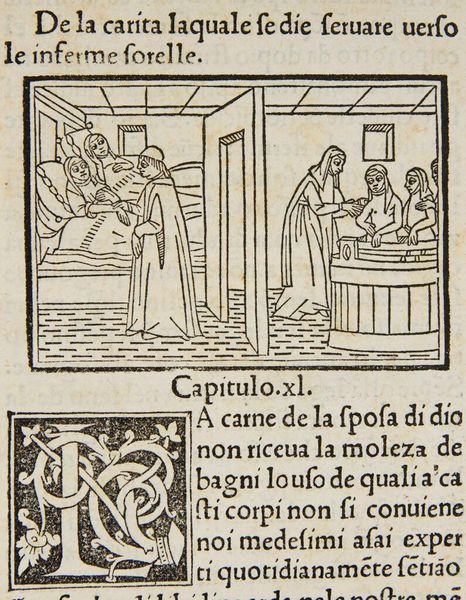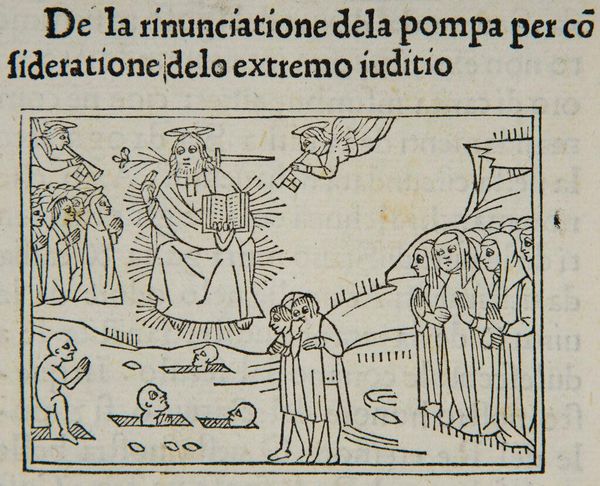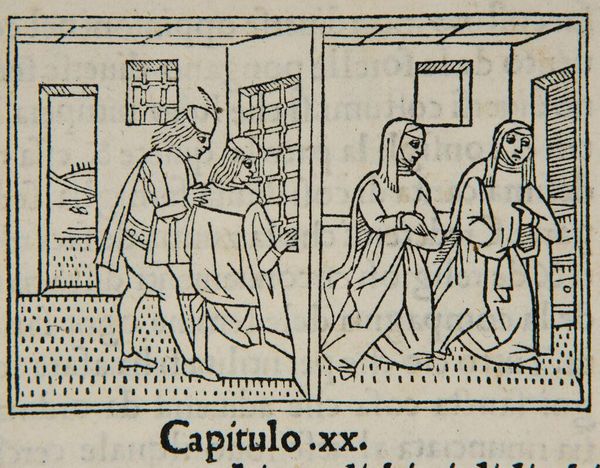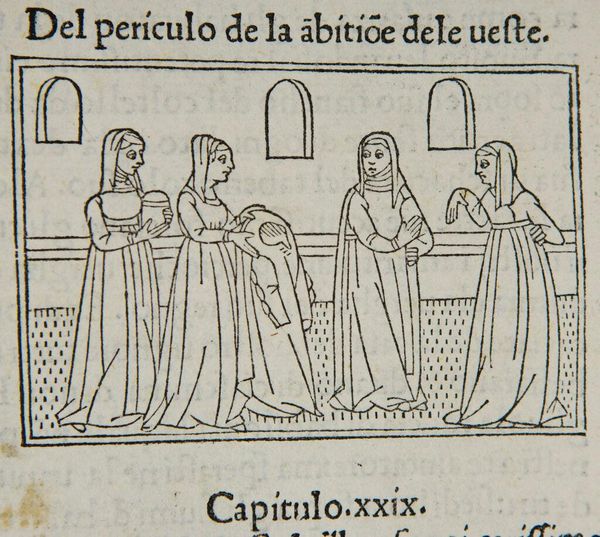
Copyright: CC0 1.0
Curator: This is an anonymous woodcut print, titled "Ch. 11. On the vanity of worldly knowledge," currently housed at the Harvard Art Museums. Editor: The burning books immediately strike me. There's such a stark contrast between that destructive act and the serene expressions on the figures' faces. Curator: Indeed. Burning books was a common motif during periods of religious reform. It visually represents the rejection of secular knowledge in favor of spiritual enlightenment. Editor: Right, and this being a woodcut, the very act of its production involves a skilled artisan, laboring meticulously to propagate this anti-intellectual message, creating a fascinating material paradox. Curator: The image evokes the power of the Church, its dominance in shaping thought and controlling the flow of information, especially during the rise of printed materials. Editor: I keep thinking about the books themselves, the paper, ink, binding. These physical objects are being destroyed, which reveals the intense fear towards the ideas they contain. Curator: A powerful reminder of how societal values can drastically reshape our relationship with knowledge and its dissemination. Editor: Yes, it's a potent, if troubling, encapsulation of a complex moment in the history of materials and belief.
Comments
No comments
Be the first to comment and join the conversation on the ultimate creative platform.
